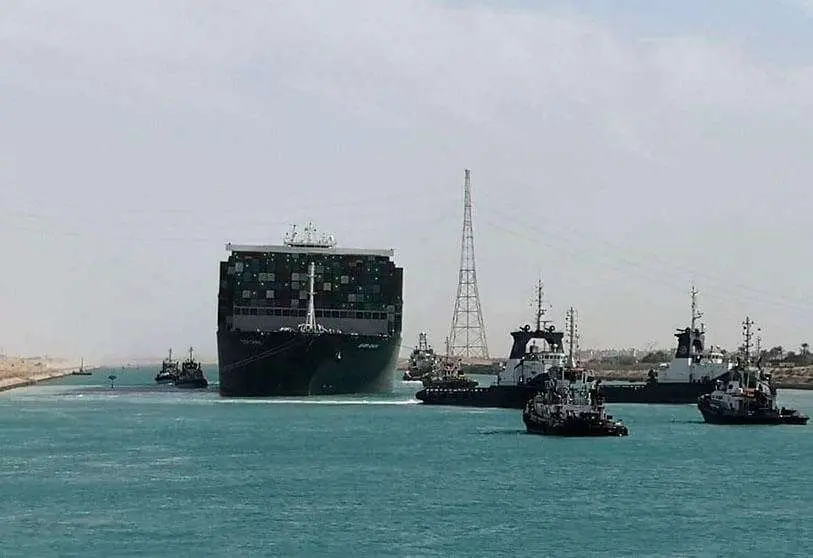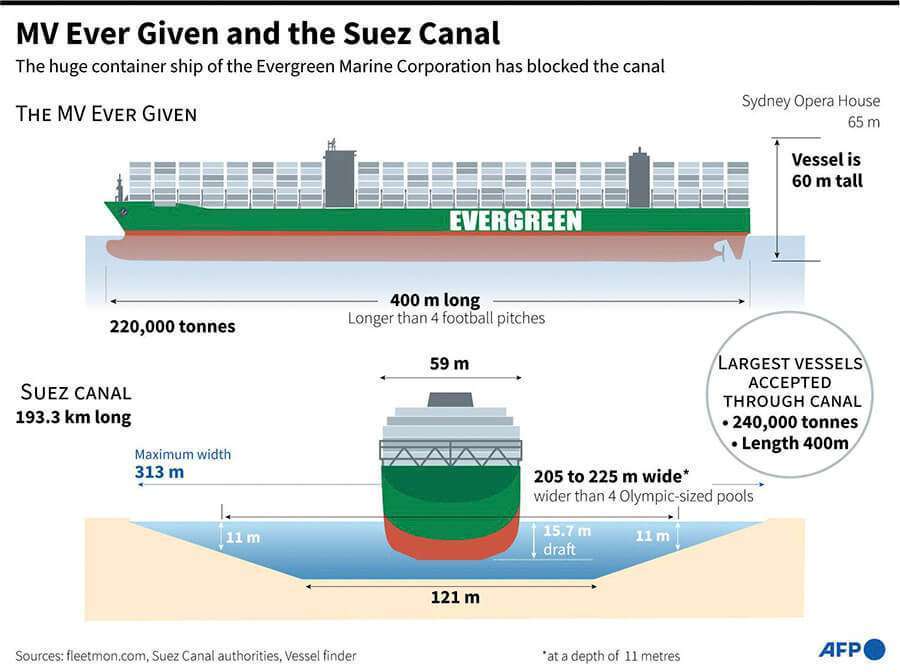Suez Canal crisis revives Israeli-Russian talks on alternative routes

The crisis of the EverGiven container ship, which ran aground in the Suez Canal and was released after completely blocking all other shipments for six days, has revived talk of alternatives, including Israel's Ben Gurion Canal project that would link the Red Sea to the Mediterranean.
Experts say that whenever the vital Suez Canal, used by some 19,000 ships a year carrying up to ten percent of world trade, is blocked for any reason, alternatives automatically resurface.
The Israelis are promoting their Ben Gurion waterway project as a rival to the Suez Canal. They say the distance between Eilat and the Mediterranean is not long, and in fact is similar to the distance of the Suez connection between the Red Sea and the Mediterranean. Tel Aviv plans to turn this canal into a multi-faceted project, as well as playing a commercial role challenging the Suez Canal. It also aims to build small towns, hotels, restaurants and nightclubs around the new canal.

Egyptian President Abdel Fattah al-Sisi sought to reduce Egyptians' fears about the alternatives the world might seek after the Suez Canal crisis that caused traffic to be disrupted for days. "The Egyptians have managed to put an end to the crisis of the stranded ship in the Suez Canal, and restore normality, which reassures the whole world about the route of their goods that regularly pass through this axial shipping artery," Sisi said.
Cairo addressed the fact that the grounding would not be seen as a fateful crisis that tests the capacity of the Egyptian regime and the Suez Canal itself, as the canal is a notorious waterway that greatly affects global trade movement and this prevents it from being endangered by any supposed motive to encourage alternative solutions.
Analysts say that Egypt's downplaying of the importance of the Israeli project does not hide the risk it poses to the country's annual Suez Canal revenues of $6 billion. It is also possible that the alternative canal will gain regional backing from states such as Jordan, which would be a struggle against their social and economic difficulties. Amman may find in this project a way out of its crises after failing to obtain sufficient Arab support to shore up its economic situation.

It is not unlikely that the Israeli canal project will also win the approval of countries such as Saudi Arabia, whose Red Sea megaproject aims to turn the city of NEOM into a tourist attraction. The Saudi project is a short distance from the proposed southern Israeli end of the Ben Gurion Canal in Eilat.
The idea of an Israeli canal linking the Mediterranean and the Red Sea is not new. The US newspaper Business Insider on Thursday published the contents of a classified memo indicating that the United States had studied a proposal to build an Israeli waterway to rival the Suez Canal in detonating nuclear bombs in the Negev desert decades ago. According to the 1963 US memo, which was declassified in 1996, the plan would have involved the use of 520 nuclear bombs to carve the "excavation of the Dead Sea canal through the Negev desert".
For its part, Moscow has again offered the northern sea passage as an alternative to the Suez Canal, which President Vladimir Putin has been promoting for some time as a shipping route along Russia's polar coast, and which his country used to promote during the congestion in Egypt. Heralding the Arctic Route as a means to bring back continuous global trade, while providing adequate guarantees of safety, smoothness and low cost.

Russia's Rosatom indicated the importance of the North Sea highway and that it would be a "magic solution" for ships stuck at the entrance to the Suez Canal after the crisis, the distance along the northern sea lane from China to European ports is about 40 percent shorter.
Iran's ambassador to Moscow, Kazem Jalali, called for the activation of the Russian corridor and tweeted on Saturday: "Accelerating the completion of the infrastructure and activating the north-south corridor is more important than ever, and is a better option as an alternative to the Suez Canal in the transit zone".








